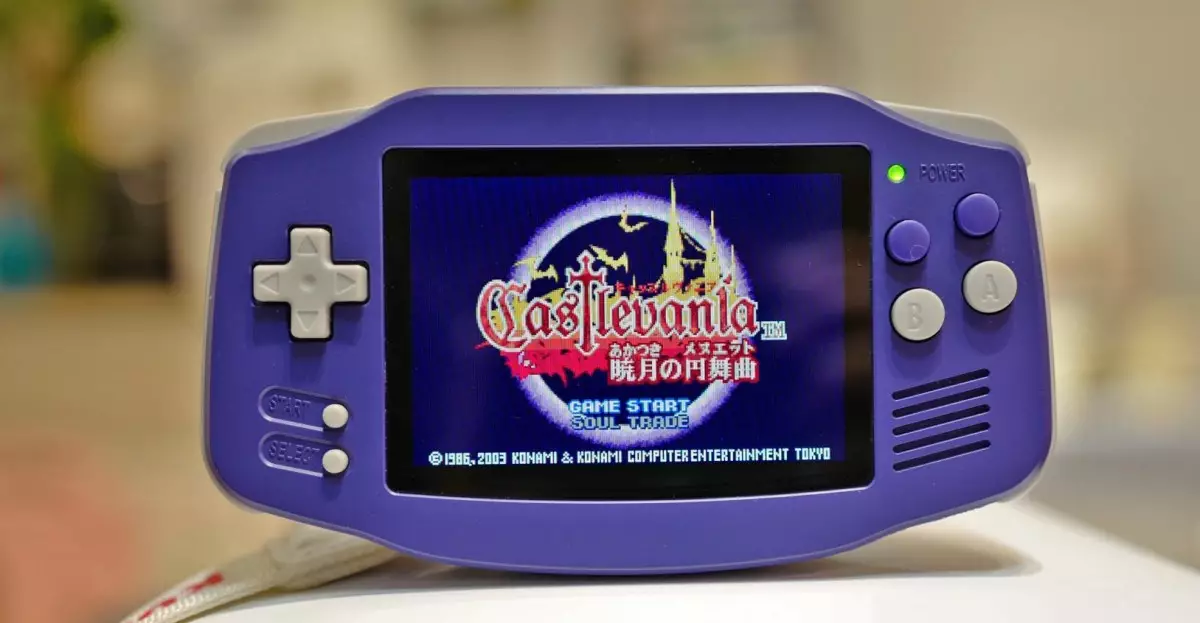As nostalgia permeates modern gaming culture, the demand for affordable handheld consoles that reminisce the golden age of gaming has surged significantly. Players longing for the simplicity and charm of 8-bit and 16-bit games have turned to brands like Anbernic, which has become synonymous with affordable clones of classics like the Nintendo Game Boy. At around $70, Anbernic’s offerings have democratized access to retro gaming, allowing new generations to experience the titles that defined their predecessors’ childhoods. Unfortunately, the introduction of heavy tariffs threatens to dismantle this burgeoning market, putting these enticing devices on the precipice of extinction.
The Tariff Trap: Anbernic’s Response
The backdrop of this crisis is largely centered on former President Trump’s proposed 245% tariffs on Chinese goods, which sent ripples of uncertainty through small businesses like Anbernic. The company’s abrupt decision to halt all shipments from China to the United States signals a significant pivot not just in logistics but in the way consumers will engage with its products going forward. Ignoring these impending tariffs was not an option; Anbernic knew the heavy financial burden imposed on consumers could deter purchases and cripple its operations.
This sudden pivot to suggest prioritizing products shipped from a U.S. warehouse—while a strategic move—raises alarms about the sustainability of pricing. It creates an artificial divide where products available in the U.S. may lack the diversity and affordability that made these handheld consoles appealing in the first place. Furthermore, it illustrates a classic struggle between a strong public sentiment toward low-cost imports and the political motivations driving the tariffs.
Consumer Choices in Limbo
As American consumers find themselves navigating new shopping landscapes, the power of choice has been severely eroded. Anbernic’s shift to U.S.-only shipments brings the painful reality of inflated prices closer to home. Customers who previously enjoyed the luxury of selecting between Chinese warehouses—where order fulfillment was quicker and cost-efficient—now have limited options. By restricting models that are shipped from overseas, Anbernic unwittingly engages in playing a game of chicken with consumer loyalty.
Other companies in similar niches, such as RetroTINK, have similarly halted shipments in reaction to these impending tariffs. The lack of guidance on how tariffs will be imposed creates a fog of uncertainty for small businesses and retro enthusiasts alike. Many players may turn to third-party sellers on platforms like Amazon to seek out Anbernic products, but this shift often propels the prices even higher, distancing consumers who crave nostalgic experiences from the very products they yearn to own.
The Fate of Affordable Gaming
What does this mean for the future of affordable, accessible retro gaming? It is hard not to draw parallels with other sectors that have been squeezed by tariff policies, leading to higher prices and diminished selection. Anbernic’s predicament reveals a broader issue at play, as it serves as a bellwether for consumer electronics manufacturing heavily reliant on Chinese production.
Should these tariffs come into full effect, the impact will ripple far beyond niche markets. Gamers of all stripes will feel the pinch, as the affordability of not just retro gaming devices, but countless other products teeter on uncertain ground. As much as we crave the simplicity and joy encased in these handheld consoles, we must also dread the implications of losing access to them.
A Call for Community Resilience
In this climate of uncertainty, the retro gaming community must band together. Supporting brands like Anbernic—whether through direct purchases of U.S. stock or by advocating for fair trade practices—becomes crucial. Nostalgia is a powerful motivator, one that should be coupled with advocacy to preserve the affordability of such cherished experiences. As the gaming landscape shifts, the call to action is clear: gamers must remain vigilant and support platforms that champion accessibility, ensuring those beloved pixelated adventures remain within reach for everyone.


Leave a Reply